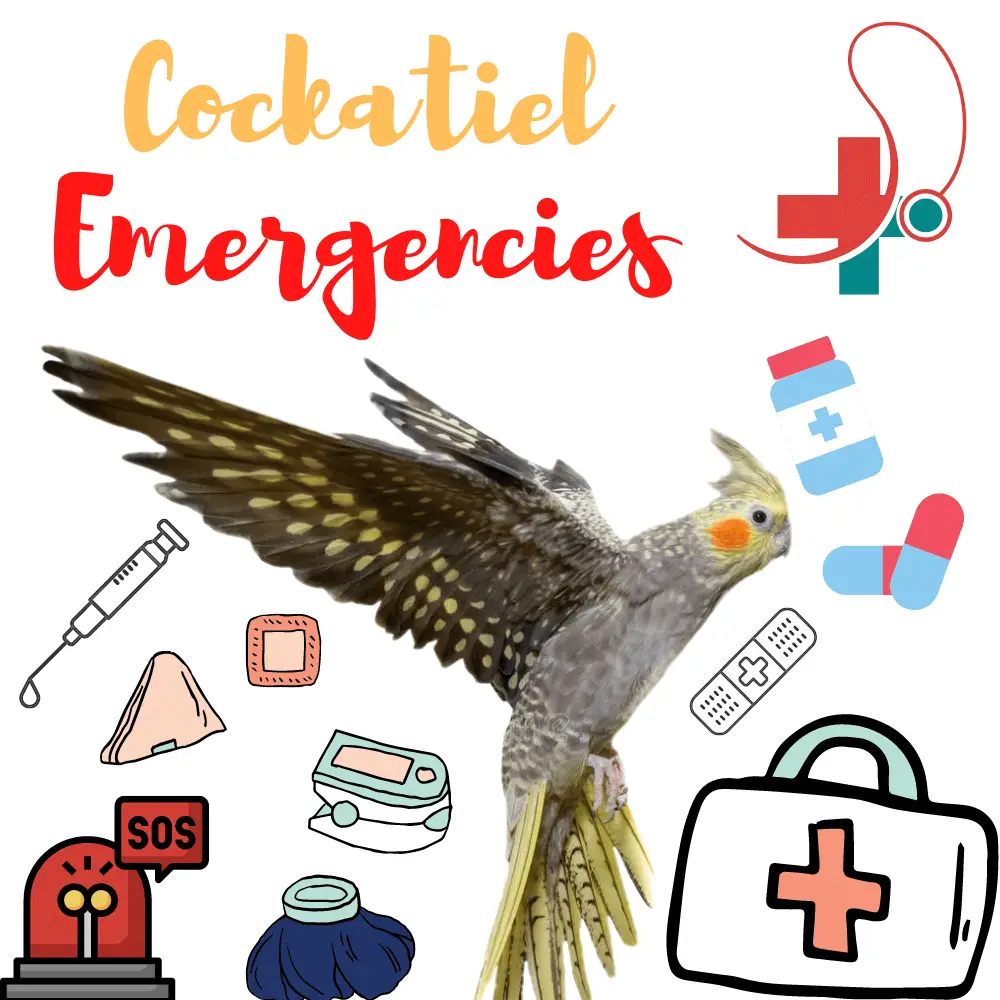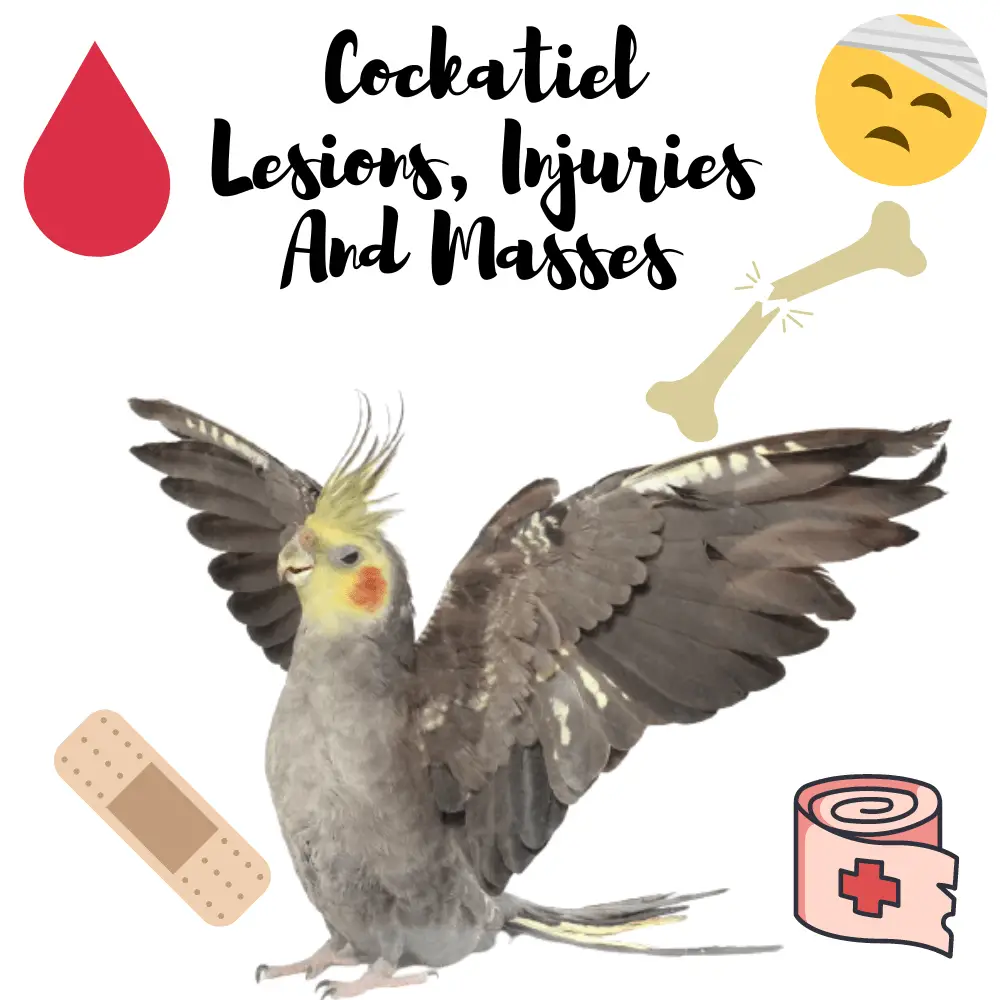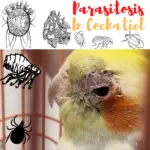
How to Save a Sick Cockatiel Bird Emergency? Cockatiel emergencies: any abnormal behavior or sign in a cockatiel should be considered by default as a veterinary emergency. Indeed, the pathologies of the bird can quickly be serious and fatal. If you find that your pet is visibly not doing well, isolate him from your group of cockatiels and keep him in a dark room (or a cage covered with a sheet) at medium temperature before quickly taking him to your veterinarian.
However, some animals are more demonstrative than others.
It is important to remember the 5 main points to best maintain good health in your bird:
- Good hygiene
- Suitable food and not too rich (beware of fatty liver disease!)
- Adhere to strict quarantine when introducing new individuals to avoid contamination
- Respect their need to fly and move (and therefore take their animals out of their cage or provide them with an aviary of sufficient size)
- Respect their physiological needs, including those of gregarism.
Finally, do not forget that the bird can transmit a number of zoonoses such as salmonellosis, psittacosis (chlamydia) or avian tuberculosis. Fragile or immunocompromised people are particularly susceptible.
Signs of disease in cockatiel
A sick cockatiel may develop certain signs such as lethargy, ruffled feathers, a change in appearance with drooping eyelids, sagging on the perch, disinterest in hygiene and the toilet, or even isolation at the bottom of the cage.
It is also important to monitor for any rapid or suspicious weight changes. Similarly, a sudden change in the character of a bird is a sign not to be taken lightly: so a cockatiel that naturally sings a lot and suddenly becomes mute without explanation may be sick.
Also, monitor the ingestion of water and food and regularly check the droppings of your cockatiels. The breathing of birds should be normal, as well as their voice.
Finally, any type of swelling or mass is a veterinary emergency.
Emergency cases in cockatiel
The most common emergencies for cockatiels generally include fractures, respiratory problems, hemorrhages, laying pain or poisoning, and poisoning.
- In case of a hemorrhage in your bird, apply a hemostatic powder to stop the flow of blood and go to your veterinarian as soon as possible. Hemorrhage can be caused by a broken blood feather. Blood feathers are immature feathers resulting from the molting of the animal. They are recognized because they seem to be wrapped in cellophane and they are visibly irrigated.
Emergency bird care

If one of its feathers were to break, it will bleed without interruption. It will then be necessary to remove the blood pen to stop the bleeding and put pressure on the wound with a clean towel.
- Pecking is a behavior of the bird aimed at tearing off its own feathers. It can indicate stress, parasitosis, or infection in the bird.
- Lethargy is a serious sign of disease in cockatiels, it requires immediate consultation with a veterinarian.
- Respiratory problems of cockatiels are to be taken seriously. Symptoms include lethargy, ruffled feathers, loss of appetite as well as breathing through the beak, and abnormal tail movements. Throwing through the beak or nostrils is possible. Open-mouthed breathing can also be a sign of hyperventilation due to heat or significant stress.
Transporting a sick or injured bird
It is important when adopting cockatiels, to think about having a safe transport box adapted to your birds. This box will be very useful if you need to move your animals, to take them to the vet for example.
If you need to carry a sick or injured cockatiel, remove toys and feeders from its carrying box. Cover the cage with a cloth and keep the bird warm. If your pet is not able to stand on his perch on his own, gently wrap him in a clean towel.




















